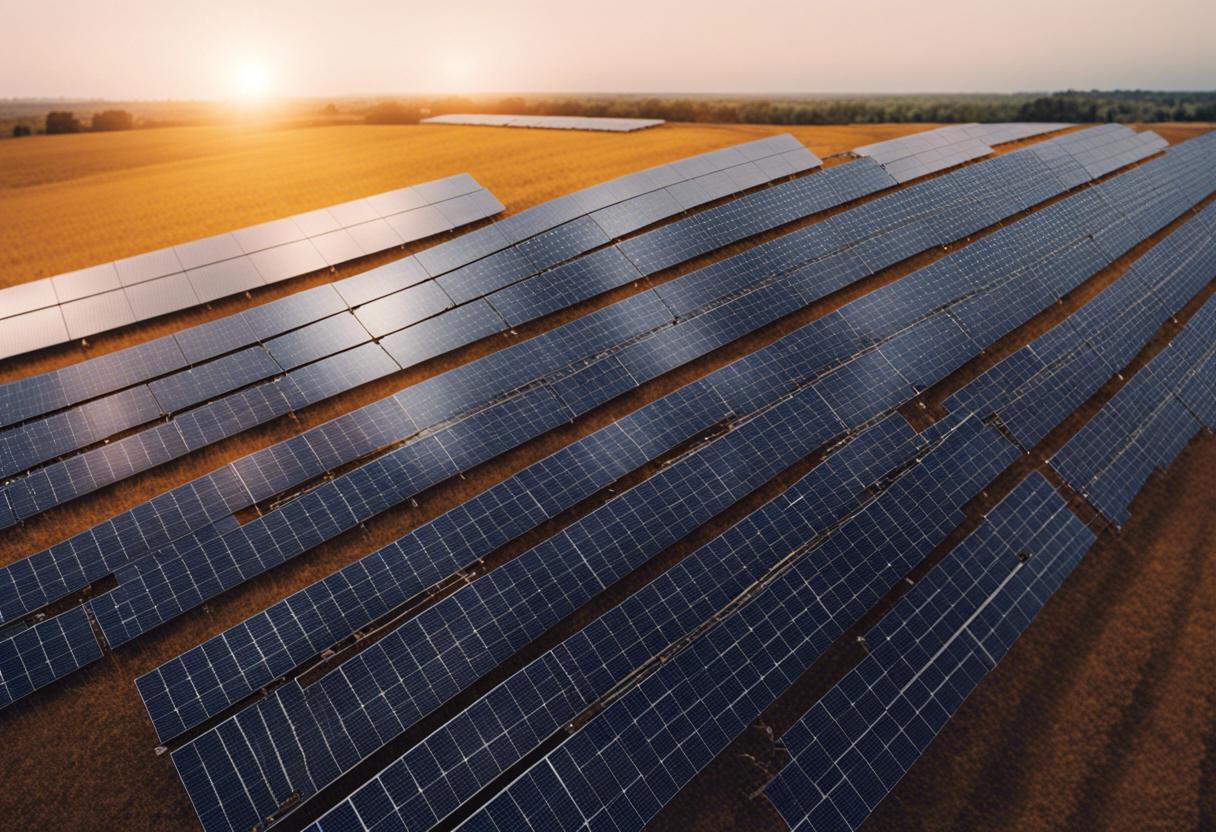DP Energy, a renewable energy company based in Buttevant, Co Cork, Ireland is setting up one of the leading solar farms in Canada, an endeavour that is worth over €400 million. The company, renowned for establishing wind and solar energy plants not only in Ireland and the UK, but also in Australia and Canada, recently received permission for their proposed Saamis Solar farm in Medicine Hat, Alberta, Canada. Once completed, the facility, boasting 600,000 solar panels and 325 mega watts (MW), will be the second largest of its kind in Canada. According to Chief Executive Adam Cronin, it promises to be the most substantial energy plant in any urban location in the nation, capable of providing enough electricity to power a quarter of a million homes. While the exact costs have not been officially disclosed by the firm, the Alberta provincial government estimates the investment to be around $600 million Canadian dollars or €420 million. Construction is expected to commence within the first three months of next year. Given DP Energy’s business model, the completed plant will likely be sold off to an operator. The company, owned by its founders Maureen and Simon De Pietro, principally involves itself in site identification, design, planning approval and construction, often in collaboration with partners for larger ventures. They typically sell the projects, or their stakes in them, once they are completed or upon receiving vital planning approvals and licences. Being consistently conscious of factors like electricity grid access, energy policy and environmental impact, they ensure to choose locations where the projects will have barely any detrimental effect on the environment. As an example, Mr Cronin mentioned that the Saamis site is situated on an industrial landfill area that is otherwise unusable. With a history stretching back three decades, DP Energy was an early pioneer in the construction of wind farms in both, Ireland and the UK.
During the early years of the 21st century, a portion of its assets were sold to ESB, a state-owned company. These funds were then utilised for expanding its operations internationally. With less than 50 permanent employees, the company, according to Mr Cronin, frequently contracts external consultants and workers. In Canada, it has approximately five staffers who scout prospective development sites.
The company continues to actively operate in the Republic and has forged a partnership with the Spanish energy tycoon, Iberdrola, for future offshore wind ventures. They are also collaborating with French utility ÉDF and ESB in a bid for the Celtic Round 5 capacity. This will allow for the allocation of offshore space off the coast of Wales by the British government for development projects.
Mr Cronin voiced his concern that the Irish government was failing to leverage the state’s potentially profitable offshore energy assets. He highlighted that it was initially assumed that developers, up until 2030, would choose offshore locations and construct wind farms. However, the government decided to take a different approach, which Cronin referred to as ‘plan-led’. This implied that the government would pick the places for developers to construct. To date, one location has been selected by the State, with the potential to produce approximately 900MW. Cronin suggests this isn’t sufficient to tempt international investment.
He criticised the government for moving too slowly and lack of resources of the relevant departments to pace up work.
In Canada, the company, along with the Piapot First Nation, has its sights on constructing a 200MW wind farm in Saskatchewan. Additionally, a 400MW floating wind plant is being planned with SBM Offshore near Nova Scotia.
In total, the company has projects amounting to a capacity of approximately 9700MW under development in Britain, Australia, Ireland, and Canada.

